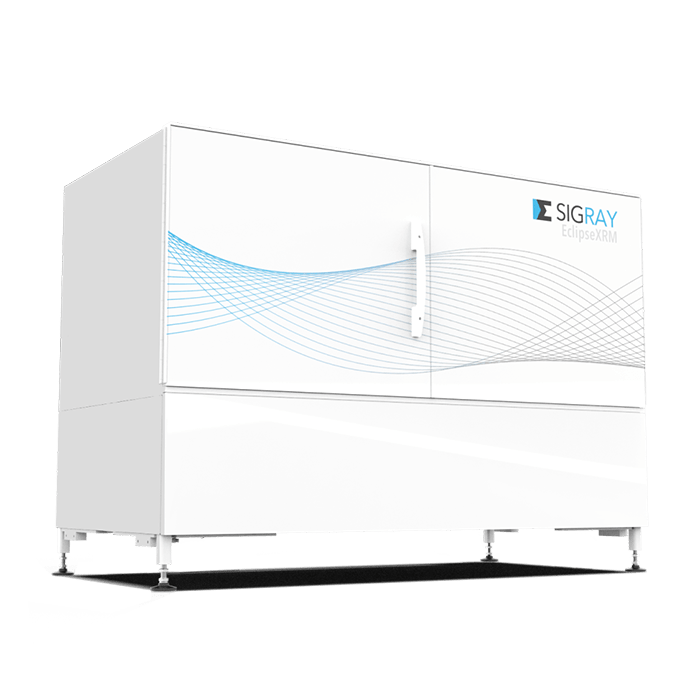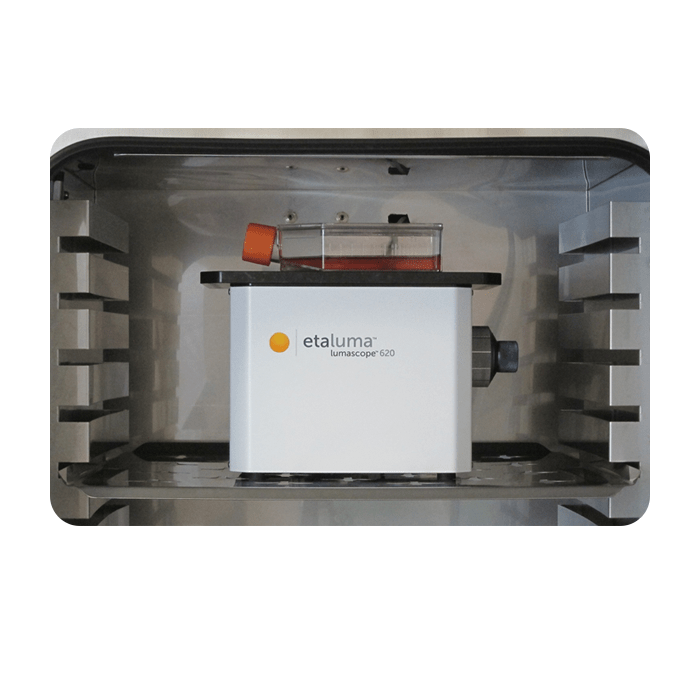
EclipseXRM-900 - High Resolution X-ray Microscope
Computed TomographyComputed Tomography - Life SciX-ray Microscopy
High Resolution, Inverted Fluorescence Microscopy with a compact design that allows use inside incubators, hoods, and workstations.

Microscopes focused on quality images, versatility, compact design, and ease of use.

The Lumascope 620 with 1200-pixel frame sizes and a 20X objective provides far brighter and more uniform illumination than I have ever seen on any microscope using a standard Xe, Hg, or incandescent illuminator. Bravo!
Lumascopes are highly versatile, compact inverted fluorescence microscopes that provides high resolution images comparable to those from traditional, high-cost microscopes. The Lumascope design was conceived and developed by working scientists who realized that a large proportion of everyday fluorescence microscopy involves imaging and measuring the presence, health, and signal of labeled cells. Traditional inverted microscopes are expensive, complicated, and loaded with features that are not required for these tasks. Lumascopes focus on: quality images, versatility, compact design, ease of use, and value for money.
Lumascopes utilize LED light sources, Semrock filters, advanced optical engineering, and CMOS sensors to provide near diffraction-limited (theoretical maximum) resolution. Powered only by a USB connection, Lumascopes easily record your photos, time-lapse series, and live videos directly to your computer. And their compact size enable working in challenging locations, including inside incubators, biological safety cabinets, and environmental control workstations with remote control and image monitoring.
The inverted design accommodates microplates, flasks, dishes and custom labware in addition to slides that you can adjust by the Manual XY Stage (on the Lumascopes 620, 560 or 460; sold separately) or control manually or automatically on the automated Lumascope 850/820. Lumascopes come with Lumaview software that sends images directly to your computer via a USB cable, eliminating the need for on-board image storage and processing and contributing to the compact size. Lumaview enables time-lapse studies over seconds, minutes, hours, or days. Live videos can be recorded at up to 30 frames per second.
Dr. Thorpe describes his mechano biology research and the use of the LS620 and LS720 microscopes from Etaluma.
Run time – 17sec
Etaluma claim to be the world’s toughest microscopes. Here’s them putting one of their system to the test.
